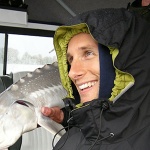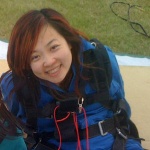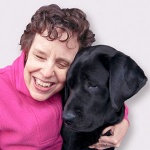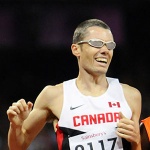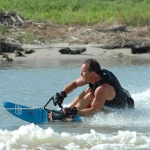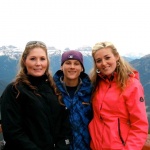Marc Ross
On Course And Giving Back
I was born in Vienna, Austria in 1981 and grew up in Calgary, Alberta. Shortly after my seventeenth birthday, while on an exchange program in France, I broke my neck diving off rocks with friends. After months of rehabilitation and therapy, I decided to get back to school, now as a C 5 quadriplegic with limited shoulder movement and weak biceps. I graduated high school with my class in the spring of 1999, and went on to earn my BA and MSc in psychology at the University of Calgary. In the fall of 2012, I completed a Ph.D. in educational contexts.





